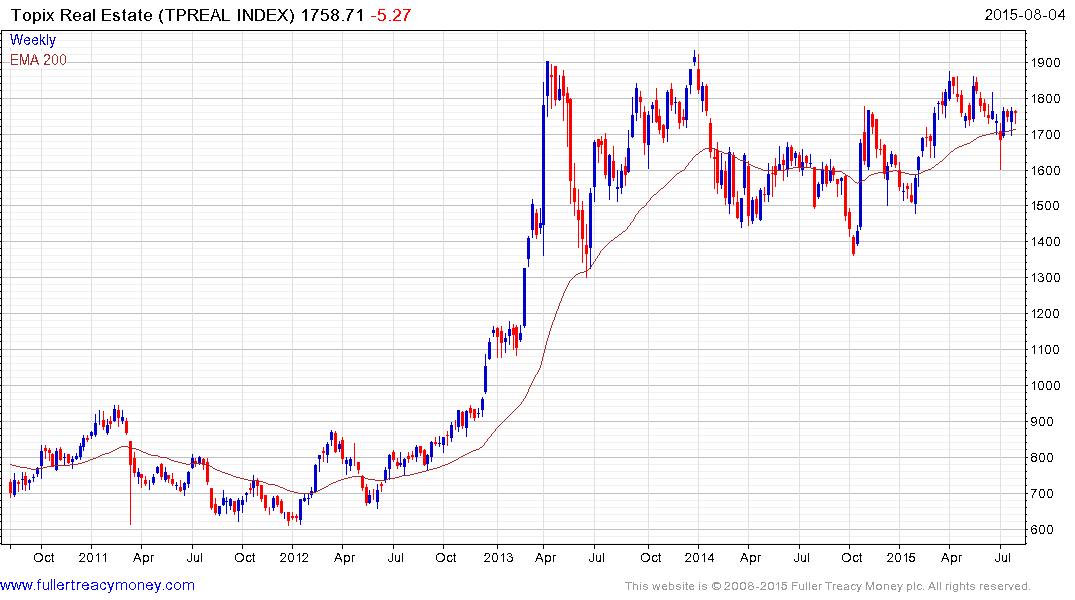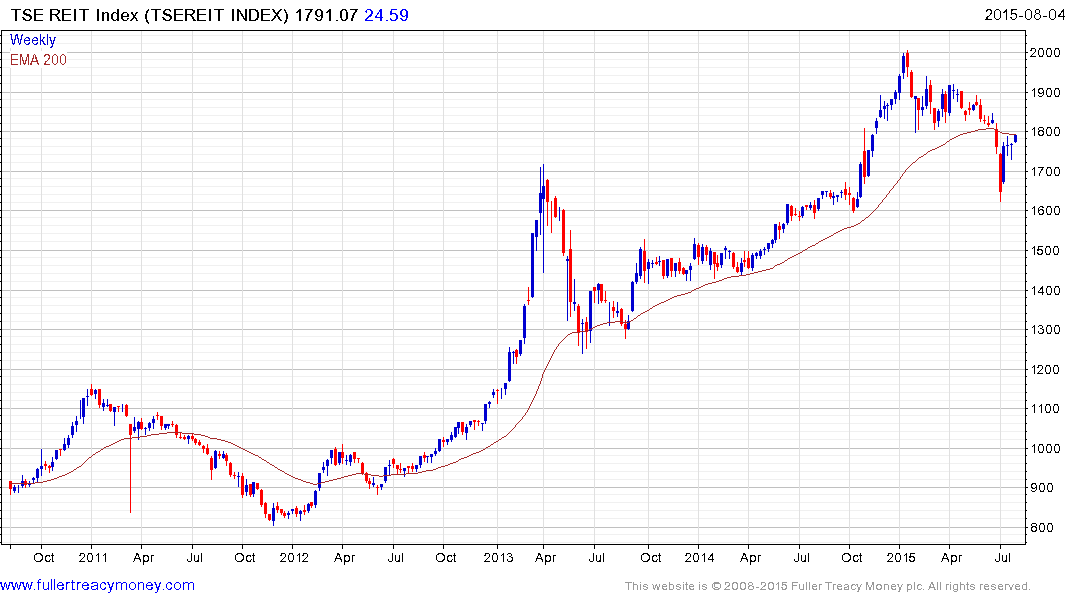Last dance
Thanks to a subscriber for this report from Deutsche Bank which may be of interest to subscribers. Here is a section:
Bubbles always come in different forms
With the big cliff of April 2017 in sight, enjoy the last party like a driver careening to the cliff's brink. Japan is now painted in a completely optimistic light, with the pessimism which permeated Japan after the Great East Japan Earthquake in 2011 forgotten and expectations for the 2020 Tokyo Olympics riding high. The bank lending balance to the real estate sector is at a record high, and we expect bubble-like conditions in the real estate market to heighten due to increased investment in real estate to save on inheritance taxes. History repeats itself, but always in a slightly different form. We have no choice but to dance while the dance music continues to play.Japan heading towards its fourth bubble
Japan has seen three bubble-like rises in real estate prices; in the early 1970s, the late 1980s, and the mid 2000s. We are now jumping into a fourth bubble. The three preconditions needed for a real estate bubble are: 1) a plausible scenario that supports the bubble, 2) more aggressive bank lending to the real estate sector, and 3) tax reforms that boost real estate prices. We believe that current conditions neatly meet these requirements: 1) a plausible scenario – although we see no reason to believe that everything will be fine until the Tokyo Olympics, it sounds plausible on the surface; 2) record-high bank lending to the real estate sector; and 3) widespread real estate investment to save on inheritance taxes which were raised.?We currently have no choice but to continue dancing
The Japan Revitalization Strategy, announced as the government's new growth strategy, includes many policies which push Abenomics' bedrock philosophy of survival of the fittest, and thus Japan's globalization seems right around the corner. As a result the middle class will likely be greatly segmented, with the gap between the rich and poor widening. An increase in high-networth individuals will boost savings, which will keep interest rates declining. This will likely push up real estate prices as many investors seek higher yields. Moreover, Japan's promotion of English language education is also likely to increase Japanese real estate investment by overseas high-net-worth individuals. It is uncertain whether these strategies will prove successful. However, the party music is currently high and loud in Japan and we can only continue to dance – even though we know it would be the last dance.
Here is a link to the full report.
The long-term effects of quantitative easing will not be apparent for some time but we already have evidence that money printing inflates asset prices. There is every reason to expect that abundant credit, ultra-low interest rates and a government committed to reflation will support asset prices.

Following an explosive breakout in 2012, the Topix Real Estate Index (P/E 29.82, DY 0.76%) has spent more than two years ranging and has held a progression of higher reaction lows since October. A sustained move below 1600 would be required to question medium-term scope for additional upside.

The TSE REIT Index (P/E 31.28, DY 3.14%) hit a medium-term peak near the psychological 2000 in January and dropped abruptly through the tread mean in early July. It has since rallied back to test the region of the 200-day MA and will need to sustain a move above 1800 to signal a return to demand dominance beyond the short-term.


